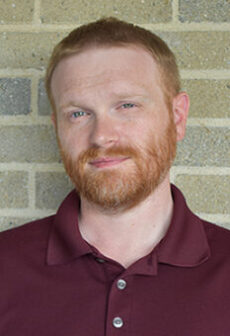We cannot see distinctly until we see God directly in heavenly life

Shawn Reeves
Living the Word / By Shawn Reeves
Fourth Sunday in Ordinary Time/Jan. 30
Jeremiah 1:4-5,17-19; Psalm 71:1-2,3-4,5-6,15, 17; 1 Corinthians 12:31 — 13:13; Luke 4:21-30
Mirrors never show things as they are. They always display the inverse of how things truly appear. The ancient Corinthians were artisans of mirrors. But they were not the mirrors you would envision today. Unlike a contemporary glass mirror, a polished bronze mirror reproduced the general image of a thing with the finer details lost in a metallic haze. Sometimes it is unclear why God permits things that seem so inconsistent with what we think to be true. In comparison to God, we will always “think as a child” and “reason as a child” because we will always (in this life) merely “know partially” and “indistinctly, as in a [bronze] mirror.” According to St. Paul, we even “prophesy partially,” so incomplete is our capacity to grasp God’s perspective. And this is the reality Jesus’ audience grapples with in today’s Gospel.
The Hebrew people had been battered by gentiles physically, culturally, and spiritually for hundreds of years. Yet, here Jesus asserts that the divine compassion toward gentiles through Naaman the Syrian and the Phoenician widow of Zarephath continues in His Gospel. It is understandable that a universal Gospel would have appeared to them inconsistent with God’s justice. Award the enemies of God’s People with an equal share in His Kingdom? This would have appeared to Jesus’ audience not only absurd but criminally unjust.
Sometimes Truth is difficult. Or, rather, sometimes the implications of certain truths are felt as unpalatable and incongruent with what we think we know to be real and concrete. We know only partially.
SETTLING FOR PARTIAL TRUTH
The demands of humility are challenging. We can sit in judgment of Jesus’ ancient Jewish audience and scold them in our hearts for rebelling against God’s generous invitation to bestow grace and mercy to all, but our hearts are frequently no different. It did not occur to them that the prophets of old “prophesy partially” and “when the perfect comes, the partial would pass away.” It did not occur to them that the fullness of God’s revelation was yet to come (and was, indeed, before them in Christ Jesus).
And, so, their hearts rebelled against the perfect in favor of the partial. Those who “spoke highly of [Jesus] and were amazed” quickly transition to skepticism, reducing Jesus to merely “the son of Joseph.” They settle not on an absence of truth but on a partial one, and the genuine identity of Jesus remains for them incomplete. And, if we are honest, this is a temptation for all.
Every heart is vulnerable to anger toward God because he does (or permits) what we do not understand and what seems to us foolish, absurd, even unjust. Every heart is susceptible to a rebellious skepticism that settles into a partial truth about God’s ways and identity. St. Paul suggests a lifestyle of meditation in genuine humility, an honest assessment that our vantage is partial and incomplete.
FULLY KNOWN, LOVED
Dwelling in the realm of the partial, sometimes it is difficult to see how “love never fails.” But the mercy of God includes the promise that the partial is not our permanent experience. Though now we “see indistinctly, as in a [bronze] mirror,” “then,” St. Paul adds, “I shall know fully, as I am fully known.”
In heavenly life, we will no longer need to rely on reflections of God but will see Him “face to face.” Our experience of Him will no longer be through indistinct images of Him (like looking upon another through a mirror) but our gaze will be turned upon him directly and fully, “as he is” (1 John 3:2). And the beauty of this exchange seems to be for St. Paul that in the gift of knowing God fully our experience of being “fully known” by God is perfected: “I shall know fully, as I am fully known.”
The words spoken to Jeremiah, “before I formed you in the womb I knew you,” become completely illumined. The longing of every heart — to be fully known and loved — is actualized. The partial passes away. The perfect comes.
—
SHAWN REEVES is director of religious education at St. John’s Catholic Newman Center in Champaign. He and his family attend St. Elizabeth of Hungary Church in Thomasboro.





